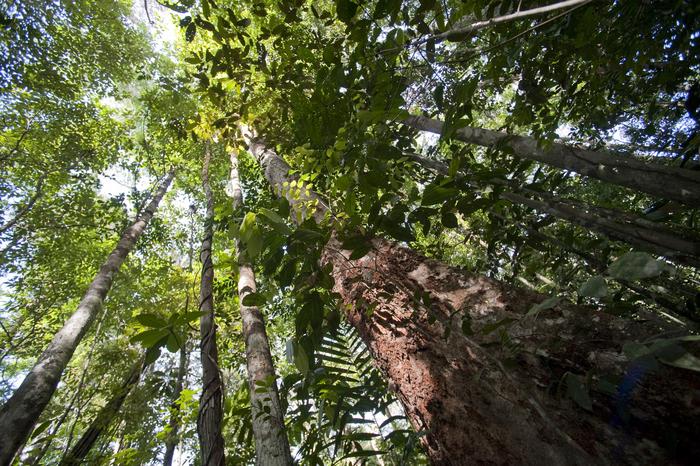Tropical trees are at the heart of this study. They are essential for climate regulation, maintaining biodiversity and providing crucial resources for many local communities. Understanding how they evolve genetically is therefore of vital importance for preserving biological diversity and finding sustainable solutions for tropical forest adaptation to the environmental pressures they face.

Credit: INRAE – Christophe MAITRE
Tropical trees are at the heart of this study. They are essential for climate regulation, maintaining biodiversity and providing crucial resources for many local communities. Understanding how they evolve genetically is therefore of vital importance for preserving biological diversity and finding sustainable solutions for tropical forest adaptation to the environmental pressures they face.
The aim of this study was to identify the mutations accumulated during growth by two specimens of tropical trees sampled in French Guiana, a French overseas department covered to 96% by tropical forest. To do this, the scientists investigated the distribution of these mutations along the trees’ architecture, in relation to possible impacts of light (UV), as well as their transmission to embryos in the fruits.
By sequencing the DNA of branches exposed differently to sunlight, the researchers found no effect of UVs in the appearance of mutations in these two tropical trees, unlike what is seen in mammals. Although the majority of these mutations are rare in the tissues of these trees, this study reveals that, owing to their large number, they are transmitted to the fruits and therefore to the next generation. These previously ignored rare mutations add to the reservoir of genetic diversity in these tropical species. This new raw material for the engine of evolution is essential for adapting to environmental change.
This major advance, made possible by new genome sequencing and analysis tools, considerably enriches our understanding of the biology of tropical trees.
A Swiss army knife at the service of trees
Thanks to recent advances in genomics, two novel high-quality genomes from the tropical trees, Dicorynia guianensis and Sextonia rubra, now offer an in-depth exploration of tree genetics. Sampling leaves from 18 branches of these over 40-metre-tall trees has made it possible to compare leaf DNA sequencing data with reference genomes from the base of the trunk and to detect new mutations that have appeared along the branches during the growth of these trees, using cutting-edge methods transferred from human oncology to plant genomics. The mutations detected are mostly very rare in the tissues and affect all the chromosomes of the individuals. The heritability of these new mutations has been demonstrated by their targeted sequencing in fruits, opening up new perspectives for understanding the sources of genetic diversity in tropical trees.
Journal
Proceedings of the National Academy of Sciences
DOI
10.1073/pnas.2313312121
Article Title
Low-frequency somatic mutations are heritable in tropical trees Dicorynia guianensis and Sextonia rubra
Article Publication Date
27-Feb-2024




